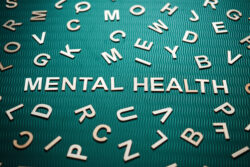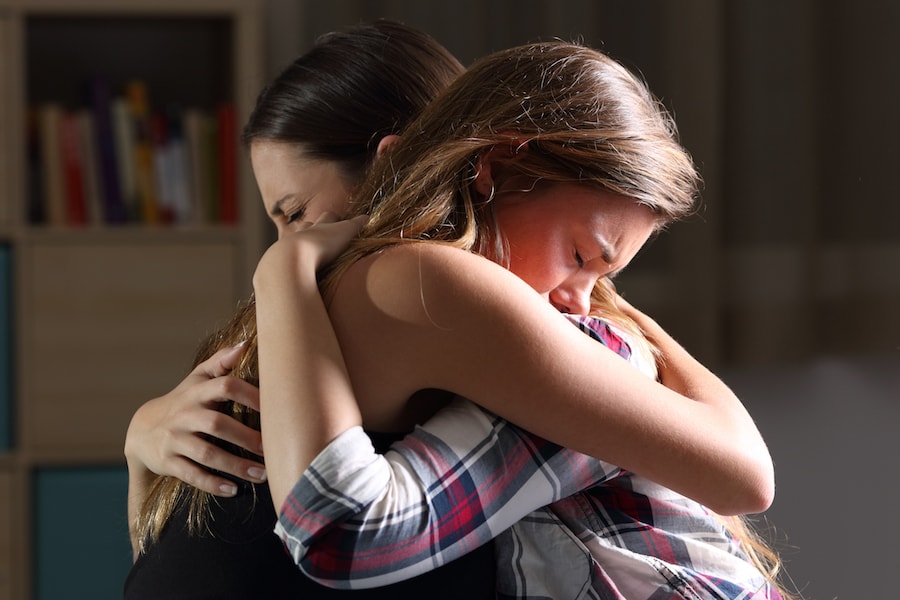Understanding Depression Relapses and Why They Occur

Depression can be debilitating, but it’s also treatable with a combination of medication, therapy, and self-care. Even with an effective treatment plan, depression has a high rate of relapse. More than 50 percent of individuals who are diagnosed with major depressive disorder experience a relapse of symptoms at some point in their life.
Knowing that relapse is a possibility can be scary. You know what it’s like when you’re experiencing a depressive episode. Learn about the signs and symptoms so that you can quickly seek the medical care you need, and even develop a plan in the event a relapse occurs.
What is a Depression Relapse?
When symptoms of depression resurface after four months without an episode, this is considered a relapse. You may experience the same symptoms you had during an initial episode of depression, or you might have different symptoms. A relapse can occur months or years after you first sought treatment. Most times, however, symptoms return within three years.
Why does depression reoccur? In many cases, it may return for no apparent reason. In other instances, relapse may be triggered by a difficult life event. This can occur in association with:
- The loss of a loved one
- Hormonal changes, such as during puberty, pregnancy or menopause
- Stressful life events such as job change or financial struggles
- Divorce
- Change in family structure, such as a newly empty nest
While negative feelings are normal, if such feelings interfere with your ability to function, it could signify a return of depression symptoms.
In addition, discontinuing treatment for depression can result in a relapse. If you have been prescribed antidepressant medication, talk with your doctor before stopping your medication or if you are experiencing unwanted side effects.
Related Post: Causes of Depression in Women
Signs of a Depression Relapse
Since symptoms can vary among episodes, it’s important to be aware of the signs of a depression relapse so you can get help when necessary. These signs may include:
- Loss of interest in hobbies and activities (often one of the earliest signs of depression)
- Trouble falling asleep or sleeping much more than usual
- Feeling sad or tearful for at least two weeks with no known cause
- Lack of appetite that leads to weight loss
- Binge eating or loss of interest in exercise that leads to weight gain
- Feelings of anger and irritability
- Changes in sexual appetite
- Difficulty concentrating and focusing
- Ruminating over negative events
- Restlessness or anxiety
- Feelings of worthlessness, guilt, or self-loathing
- Exhaustion and fatigue
- Unexplained aches and pains, stomach issues or headaches
Coping With Depression Relapse Symptoms
Seeking medical treatment as soon as possible is the best way to cope with a relapse. This often means evaluating your current treatment plan. Your doctor will likely recommend a combination of medication for depression along with cognitive-behavioral therapy (CBT) or other types of therapy.
Sometimes, antidepressants can take time to become effective. Self-care measures can help ease symptoms. Eat a nutritious diet, get enough sleep, spend time with friends and family, and exercise each day. Online or in-person support groups can help you connect with others who are living with depression.
Pyramid Healthcare provides outpatient care for adults with mental health disorders, including major depressive disorder. Teletherapy services for mental health are available for new and current clients during the COVID-19 pandemic.
If you are dealing with symptoms of depression and suspect that you are experiencing a relapse, treatment is available.
Depression can be debilitating, but it’s also treatable with a combination of medication, therapy, and self-care. Even with an effective treatment plan, depression has a high rate of relapse. More than 50 percent of individuals who are diagnosed with major depressive disorder experience a relapse of symptoms at some point in their life.
Knowing that relapse is a possibility can be scary. You know what it’s like when you’re experiencing a depressive episode. Learn about the signs and symptoms so that you can quickly seek the medical care you need, and even develop a plan in the event a relapse occurs.
What is a Depression Relapse?
When symptoms of depression resurface after four months without an episode, this is considered a relapse. You may experience the same symptoms you had during an initial episode of depression, or you might have different symptoms. A relapse can occur months or years after you first sought treatment. Most times, however, symptoms return within three years.
Why does depression reoccur? In many cases, it may return for no apparent reason. In other instances, relapse may be triggered by a difficult life event. This can occur in association with:
- The loss of a loved one
- Hormonal changes, such as during puberty, pregnancy or menopause
- Stressful life events such as job change or financial struggles
- Divorce
- Change in family structure, such as a newly empty nest
While negative feelings are normal, if such feelings interfere with your ability to function, it could signify a return of depression symptoms.
In addition, discontinuing treatment for depression can result in a relapse. If you have been prescribed antidepressant medication, talk with your doctor before stopping your medication or if you are experiencing unwanted side effects.
Related Post: Causes of Depression in Women
Signs of a Depression Relapse
Since symptoms can vary among episodes, it’s important to be aware of the signs of a depression relapse so you can get help when necessary. These signs may include:
- Loss of interest in hobbies and activities (often one of the earliest signs of depression)
- Trouble falling asleep or sleeping much more than usual
- Feeling sad or tearful for at least two weeks with no known cause
- Lack of appetite that leads to weight loss
- Binge eating or loss of interest in exercise that leads to weight gain
- Feelings of anger and irritability
- Changes in sexual appetite
- Difficulty concentrating and focusing
- Ruminating over negative events
- Restlessness or anxiety
- Feelings of worthlessness, guilt, or self-loathing
- Exhaustion and fatigue
- Unexplained aches and pains, stomach issues or headaches
Coping With Depression Relapse Symptoms
Seeking medical treatment as soon as possible is the best way to cope with a relapse. This often means evaluating your current treatment plan. Your doctor will likely recommend a combination of medication for depression along with cognitive-behavioral therapy (CBT) or other types of therapy.
Sometimes, antidepressants can take time to become effective. Self-care measures can help ease symptoms. Eat a nutritious diet, get enough sleep, spend time with friends and family, and exercise each day. Online or in-person support groups can help you connect with others who are living with depression.
Pyramid Healthcare provides outpatient care for adults with mental health disorders, including major depressive disorder. Teletherapy services for mental health are available for new and current clients during the COVID-19 pandemic.
If you are dealing with symptoms of depression and suspect that you are experiencing a relapse, treatment is available.







